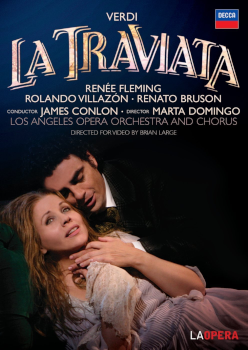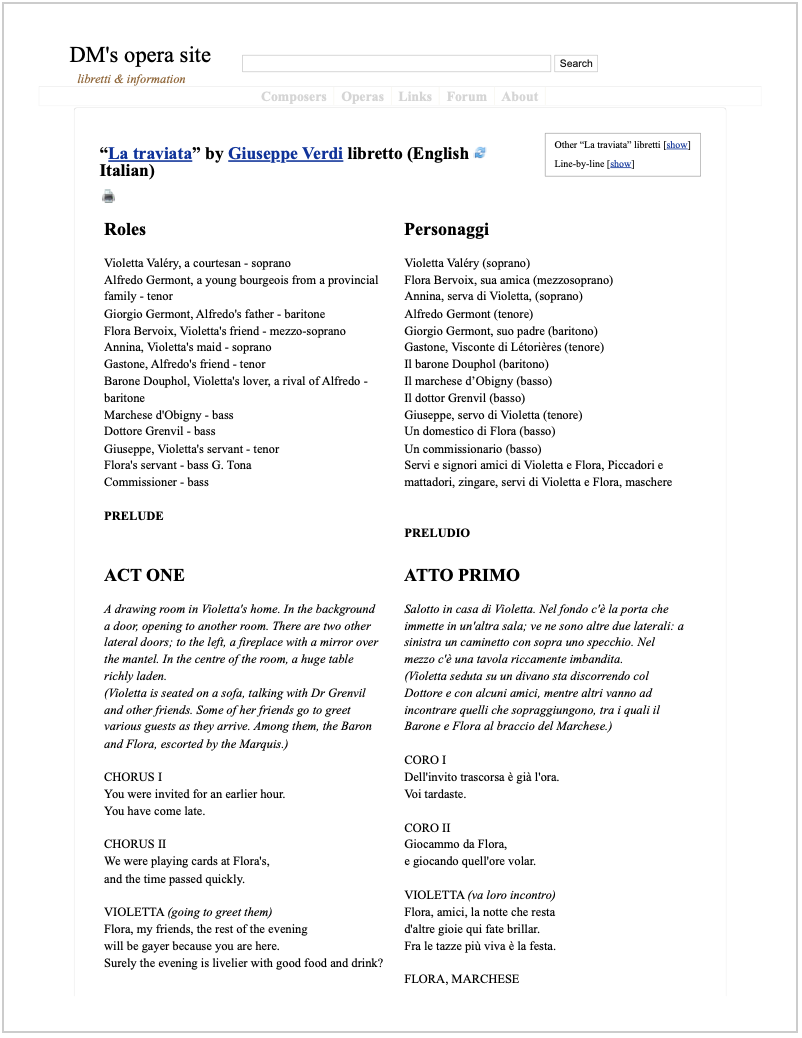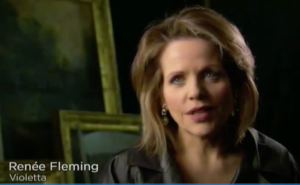July 2024 Meeting
Why see La Traviata?
La Traviata was first performed on March 6, 1853 at La Fenice in Venice. It is based on a play, "la Dame aux camélias," by Alexandre Dumas fils, which he had adapted from his own novel, Violetta.
Her real name was Alphonsine Rose Plessis, which she modified herself to Marie Duplessis. She became the most successful courtesan of her day in Paris. She has been immortalized by Dumas fils, but also counted among her clientele was the superstar of his time, Franz Liszt. Her story started in theatre, then to opera, and finally to cinema where she was portrayed in 1936 as Marguerite Gautier, by Greta Garbo in "Camille", directed by George Cukor to a screenplay by James Hilton and others. Her young lover is portrayed by Rober Taylor. So, quite the cast and crew. Cukor likely succumbed to early Hollywood censors in that he suppressed the Dumas fils detail of the camelia flower -- Marguerite's trademark was to wear a red camelia in her bodice on days of the month when she was biologically unavailable and a white one on the remaining days.Regardless of the genre, the story remains true to the original intent -- Violetta is an intelligent, self-made woman who parlayed her skills and beauty to demimonde societal success and then surrenders it all to her hope for true love. She does get to savor that love for a short while, esconced with the young poet, Alfredo, in the French countryside. But reality forces its way back into her life in what I find as the most intense part of the opera. This is when Giorgio Germont finds their country retreat to beseech Violetta to end her affair with his son, Alfredo. She demonstrates her great nobility of spirit by agreeing to sacrifice her idyll, abandon Alfredo, and return to Paris. Her line, "Più non esiste - or amo Alfredo, e Dio lo cancellò col pentimento mio." (The past does not exist - I love Alfredo now; God wiped out my past with my repentance.) Verdi was agnostic but deeply steeped in Catholic dogma and Violetta fully embraces her power to repent her past. But Giorgo's work isn't done yet -- he still has to convince Alfredo to return to the bosom of the family. He does this with what I think is the most beautiful aria of the work, "Di Provenza il mar."
After these stunning plot twists, the opera proceeds reliably to the dénouement. In the final act, Violetta offers a final lesson in grace to the Germont men. First, she gives a locket with her portrait to Alfredo intended for his yet to be met future fiancée. It is her wish that this future bride know that Violetta will be praying for them both from Heaven. Then, Violetta experiences a final surge of life force before she cries out "Oh gioia!" (Oh, joy!) and crumples as her soul ascends. She was 23 years old.
So, Verdi's answer to the question posed above is this: To bear witness to true love, faith and nobility.
July 12, 6pm, Lodge Theatre
Details
Los Angeles Opera
Sept 17, 2006
Violetta Valery - Renée Fleming Alfredo Germont - Rolando Villazon Giorgio Germont - Renato Bruson
Runtime: 2:20:23




